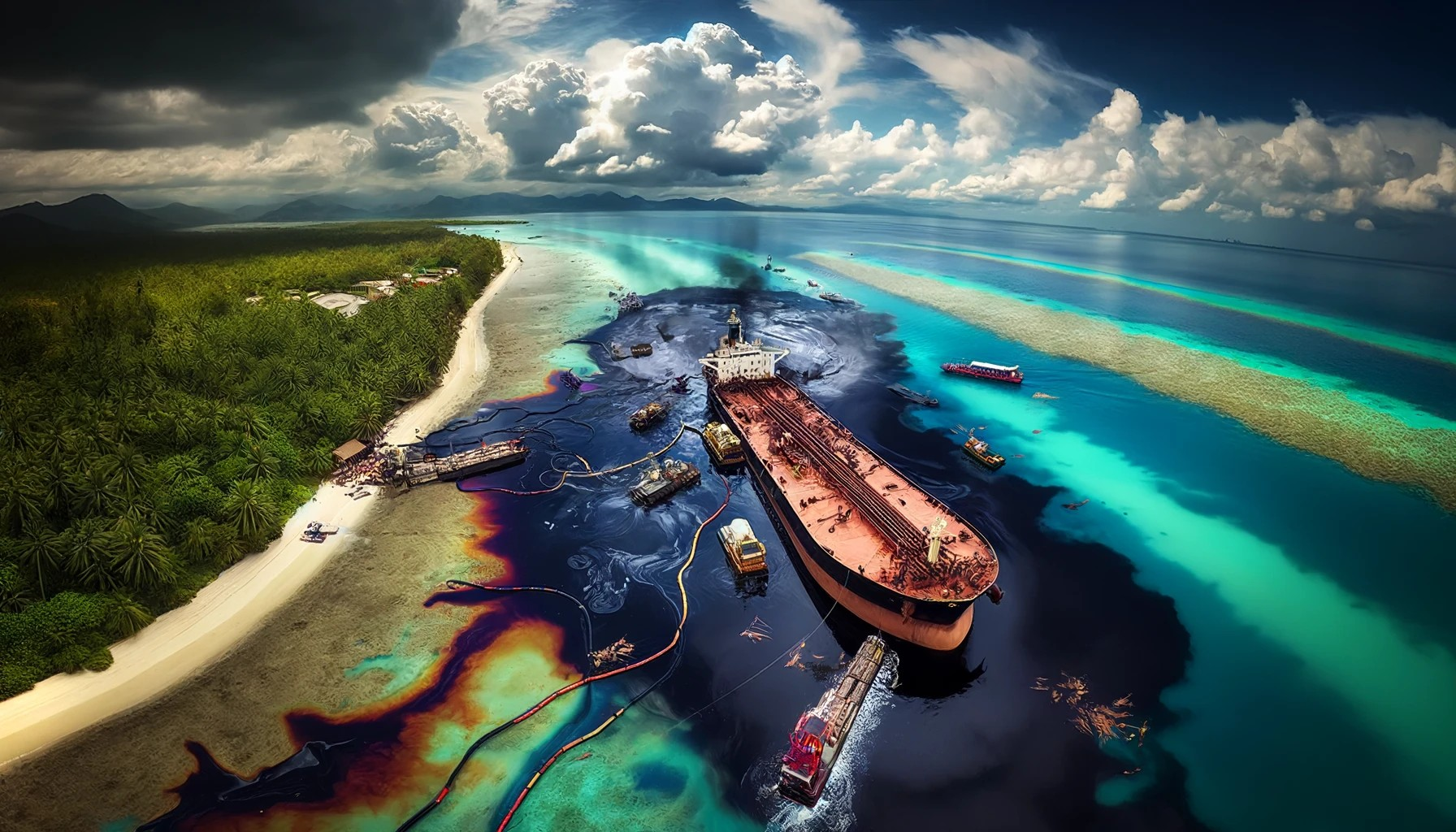Philippines Oil Spill Crisis: Tanker Sinks Near Manila, Causing Environmental Concerns
Fears of an environmental catastrophe are mounting in the Philippines after an oil tanker sank off the coast of Manila, resulting in a significant oil spill. The tanker, carrying a substantial quantity of oil, went down in rough seas on Thursday, tragically resulting in the death of one crew member.
The incident occurred amid inclement weather conditions, which contributed to the sinking of the vessel. The tanker was reportedly carrying hundreds of tons of oil, and since the sinking, oil has been leaking into the ocean. This has raised concerns among environmentalists, local authorities, and the fishing communities that rely heavily on the coastal waters for their livelihood.
The leakage poses a severe threat to marine life and ecosystems in the area. The affected region is known for its biodiversity, and the oil spill risks devastating coral reefs, mangroves, and marine species. The potential long-term impact on the fishing industry and local communities could be substantial, with fears of pollution affecting fish stocks and the health of coastal habitats.
Local authorities and environmental agencies are currently assessing the situation and coordinating response efforts to contain the spill. Cleanup operations are underway, but challenging weather conditions are complicating efforts. Booms and skimmers are being deployed to contain and remove the oil from the water’s surface, while efforts are being made to prevent the spill from reaching sensitive coastal areas.
Environmental groups are calling for a thorough investigation into the incident, emphasizing the need for stricter regulations and better safety protocols for maritime transport of hazardous materials. There is also a push for increased investment in response infrastructure to better handle such disasters in the future.
The Philippines has faced similar incidents in the past, with oil spills causing extensive environmental and economic damage. Lessons from previous spills underscore the importance of swift and coordinated response efforts to minimize harm. Past incidents have also led to legal actions and regulatory changes aimed at preventing future spills and improving response capabilities.
The oil spill threatens to impact the livelihoods of local communities, particularly those dependent on fishing and tourism. The contamination of marine resources could lead to a decline in fish stocks, affecting food supply and income for many families. Additionally, tourism, a significant source of revenue for the region, could suffer if the spill impacts beaches and coastal attractions.
The Philippine government has reached out to international partners for assistance in dealing with the spill. Offers of help have come from neighboring countries and international organizations with expertise in oil spill response. Collaborative efforts are crucial in managing the situation effectively and ensuring that all available resources are utilized to mitigate the disaster.
In light of this incident, there is a renewed call for stronger maritime safety standards and better preparedness for environmental emergencies. Experts recommend increased monitoring of vessels carrying hazardous materials, stricter enforcement of safety regulations, and improved infrastructure for emergency response. There is also advocacy for enhancing community awareness and preparedness to deal with such incidents.
As cleanup efforts continue, the full extent of the environmental damage remains uncertain. The incident highlights the vulnerabilities of marine environments to such disasters and the importance of preparedness and proactive measures to mitigate risks. The local community, environmentalists, and government agencies are closely monitoring the situation, hoping to minimize the ecological and economic fallout of this unfortunate event.

